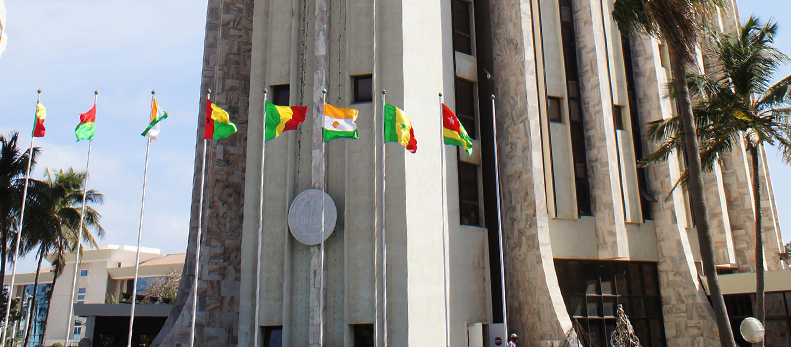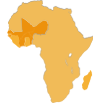The BCEAO has the exclusive right to issue currency throughout the member States of the West African Monetary Union. It issues banknotes and coins that are legal tender and redeemable throughout the member States of the Union.
The creation, issuance and cancellation of banknotes and coins are decided by the Council of Ministers. Despite the development of non-cash means of payment, use of banknotes and coins continues to hold a relatively important place in the transactions of economic operators in the Union. The single currency promotes crossborder movements of banknotes between the States. The Central Bank also conducts ongoing research on printing processes relating to currency authentication, with a view to enhancing the security of the banknotes it issues.
The management of the monetary policy of the member States of the Union by the Central Bank consists in adjusting the overall liquidity of the economy according to the trends observed in the economic situation, in order to ensure price stability and promote economic growth.
The Central Bank defines the regulations applicable to banks and financial institutions and ensures their supervision. In this framework, the WAMU Banking Commission, founded on April 24, 1990 and chaired by the Governor of the BCEAO, ensures the organization and supervision of the banking system within WAMU. The BCEAO is responsible for the General Secretariat of the Banking Commission.
Upon request by the Governments of the WAMU member States, the Central Bank assists the latter in their dealings with international financial and monetary institutions and in any negotiations they may undertake with a view to concluding international financial agreements. The Central Bank may be placed in charge of the implementation of such agreements under terms set by the conventions approved by the Board of Directors.
Specifically regarding the relations of the States with the International Monetary Fund, the Central Bank acts as a financial agent in keeping with the provisions of the Convention of September 24, 1981, signed by the Bank and the member States. The issuing institution also assists the States in the areas of design and monitoring of adjustment program implementation and debt management.
The Central Bank particularly assists the Governments in their negotiations for the rescheduling of their foreign debts. It provides support for the design, harmonization and implementation of instruments regulating external financial relations. It also helps the States draw up their balance of payments.



